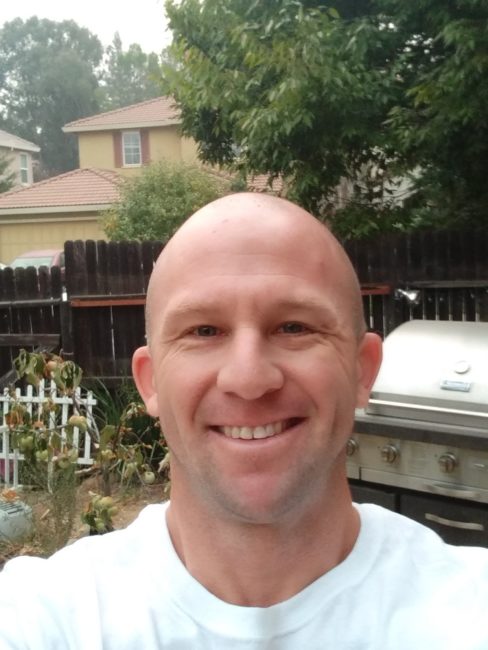
Rob Allen
Rob Allen, recently released from prison and currently working as a union plumber, has taken many steps to get a second chance. And one of these is tattoo removal.
A new client of our tattoo removal program – Allen has only been out for two months and heard about it from his parole agent – he considers the process an essential step in getting his life back together.
“To the people that I know it will be the final thing they will know that I’m done with that lifestyle,” he says. “You’re erasing that lifestyle from your life and erasing yourself from that lifestyle.”
He describes the tattoos: “I’ve got some dots on my hands, and everyone thinks it’s gang related, but it’s not, and I want to get rid of that. I am tattooed on my chest, and I want to get rid of that, because that’s also considered a gang tattoo.”
Tattoo removal became one of many reentry steps
Tattoo removal may be his final step of putting the past behind him, but Allen has taken many other actions to turn his life around from the time that he was first incarcerated at the age of 16.
When he completed his first prison term in 2004, Allen had no work experience but managed to get a job at Home Depot. While there, he ran into an old friend, who helped him get work delivering construction materials. One day his father-in-law told him that the construction industry was hiring, so Allen contacted the union and eventually entered an apprenticeship program.
“I just had to show up with an I.D, my social security card and proof of education,” he says. His apprenticeship is as a plumber for the UA, Plumbers and Steamfitters Local 342. He works on the commercial side, mainly building hospitals and labs.
Allen was well into his apprenticeship, but short on hours and the final test, when he was arrested and imprisoned again after getting into a fight with a couple of people and pulling a knife.
During his 13-year sentence – he got out after 10 – he took advantage of other things besides vocational training, since he had that covered. Allen participated in an alternatives to violence program and Toastmasters, and earned two AA degrees.
Union brothers paid his rent
Allen stayed in touch with his union brothers. And when he got out, “they were there with open arms,” he says. He was released on Sept. 11 and back at work on the 21st.
“My union brothers paid for me to stay in an extended stay hotel for a couple of months. That way I can get together as much cash as possible,” he says.
Although back at work on the job sites, Allen must also do some retraining. Things have changed a lot in 10 years. He’s reentered the apprenticeship program – and about halfway done – to complete the number of required worksite hours and classroom instruction.
Advice for those in reentry
Allen highly recommends that those leaving prison consider joining a union. He says that people should look up the various union websites online. “There are different training centers for the different locals. They should call different unions and ask them when they’re hiring for the next apprenticeship and what’s required,” he says.
“Union labor — especially the pay — is excellent. They give you all the training because they train you the way they want you to work. Generally, they’re not judgmental about people who have been in prison. There’s a camaraderie among construction workers that is similar to that in prison. When you’ve been in prison a long time and you’re around the same people, it’s like a family. The union is the same. You have a bond, you pay the same dues, you get the same training, you know the same stuff. It’s nice.”

